Choosing new shower doors is one of the most impactful decisions you can make during a bathroom remodel. Once seen as simple, functional panels, the modern glass shower door has become the centerpiece of contemporary bathroom design. As we move through 2025, the demand for innovative and stylish enclosures is higher than ever, with frameless shower doors leading the charge. These designs transform the look and feel of a space, making it feel larger, brighter, and more luxurious.
This guide will walk you through everything you need to know about selecting the right shower doors for your bathroom. We will explore the critical differences between framed shower doors and frameless shower doors, compare popular styles, discuss pricing, and provide essential installation advice to help you make a confident and informed choice.
Why Shower Doors Are Important for Bathroom Design
Have you ever considered how much a shower door can change a room? It's more than just a way to keep water off the floor. The right shower enclosure can turn a purely functional bathroom into a personal sanctuary, a place where you can relax and unwind. The style you choose directly affects how light moves through the room, how large the space feels, and even the resale value of your home.
2025 Highlights: The clear trend is a preference for glass doors for showers, especially frameless styles. Homeowners and designers are choosing these options for their clean, minimalist lines that create an open and airy atmosphere. Market data shows that frameless sliding shower doors are becoming the go-to choice in both new construction and major remodels, reflecting a broader shift towards spa-inspired home design. While they represent a larger initial investment, their impact on a bathroom's aesthetic and perceived value is undeniable.
Shower Door Types Compared: Framed VS Frameless VS Others
Understanding the fundamental shower door types is the first step in finding the perfect fit. Your choice will depend on your bathroom's size, your budget, and the style you want to achieve. Let's break down the most common options.
Framed Shower Doors
Framed shower doors are the traditional choice and remain a popular option for many reasons. These doors have a metal frame, typically aluminum, that surrounds the entire door and any stationary glass panels.
Pros: They are generally more affordable and often easier to install, making them a great option for budget-conscious projects or DIY enthusiasts. The sturdy frame provides excellent structural support and a very effective water seal.
Cons: The metal frame can look bulkier and may trap soap scum and mildew in its tracks and crevices, requiring more diligent cleaning. It can also visually close off the shower, making the bathroom appear smaller.

Frameless Shower Doors
Dominating current design trends, frameless shower doors offer a seamless and modern look. These doors use heavy-duty tempered glass that is thick enough to be structurally sound without a supportive frame. They are held in place by minimal hardware, such as clips and hinges.
Pros: The primary advantage is aesthetics. The uninterrupted glass looks sleek, sophisticated, and makes any bathroom feel more open and spacious. With no frame around the glass, they are also significantly easier to clean.
Cons: The main drawback is the cost; they are more expensive due to the thicker glass and specialized hardware required. The installation process is also more complex and almost always requires a professional to ensure a perfect fit and prevent leaks.
Semi-Frameless Variants
As the name suggests, a semi-frameless shower door offers a middle ground. These designs typically have a frame around the top and sides of the enclosure but leave the main door glass itself unframed.
Pros: They provide a cleaner look than fully framed doors but at a lower price point than a fully frameless system. They strike a nice balance between modern style and practical cost.
Cons: While an improvement over framed models, they still have some metal components that require cleaning and lack the completely seamless look of a true frameless shower enclosure.
Other Popular Shower Door Styles
Beyond the frame, the way a door operates is another key consideration.
- Sliding/Bypass Doors: A very popular shower door choice for smaller bathrooms, these consist of two or more panels that slide past each other on a track. They don't require any swing space, making them ideal for tight quarters.
- Hinged/Pivot Doors: A hinged door swings open like a standard room door. A pivot door is similar but pivots on pins mounted at the top and bottom of the door, allowing it to open both inward and outward in some cases. Both offer a wide entry but require clear floor space for the door to swing.
- Bi-Fold Doors: These doors are made of multiple panels that fold inward as they open. They are an excellent solution for very small bathrooms where neither a swinging nor a sliding door is practical.
| Door Type | Best Use | Pros | Cons |
|---|---|---|---|
| Frameless | Modern & Luxury Baths | Sleek, creates an open feel, easier to clean | Higher cost, professional install is critical |
| Framed | Budget & Classic Designs | Affordable, solid water seal, DIY-friendly | Bulkier look, frame and tracks collect grime |
| Sliding/Bypass | Tight Spaces & Tubs | Space-saving, cost-effective | Track requires regular cleaning, less high-end feel |
| Pivot/Hinged | Larger Bathrooms | Wide entryway, elegant appearance | Requires swing space, potential for drips |
| Bi-Fold | Tiny Bathrooms | Maximizes entry in tight spots | More moving parts can lead to wear |
What to Look for in a Quality Shower Door Manufacturer
While we are not naming specific companies, it's helpful to know what separates a great manufacturer from an average one. Customer satisfaction surveys consistently show that top-rated brands excel in a few key areas. When you're shopping, look for manufacturers known for:
Quality and Durability: The best shower door brands use high-quality materials, from the tempered glass to the metal hardware. Their products are built to last and withstand daily use.
Innovation and Design: Leading companies are often at the forefront of design trends, offering sophisticated frameless shower doors and semi-frameless options with a variety of glass and hardware finishes.
Customization: A great manufacturer offers options. This can include different types of glass (clear, low-iron, frosted, rain), various hardware finishes (chrome, matte black, brushed nickel, brass), and the ability to create a custom-sized shower enclosure for your unique space.
Warranty and Support: A strong warranty is a sign that a company stands behind its products. Look for clear warranty terms and accessible customer support for peace of mind.
How to Choose the Right Shower Door for Your Bathroom
Choosing the right shower door can feel overwhelming with so many options. By breaking the decision down into a few key factors, you can narrow your focus and find the perfect match for your home.
Key Factors to Consider:
Bathroom Dimensions and Layout: The size and shape of your bathroom are the most important constraints. Do you have a small shower stall or a large, luxurious walk-in shower? Is there enough room for a hinged door to swing open, or is a sliding door a better fit?
Your Design Vision: What kind of atmosphere do you want to create? Are you planning a bathroom remodel with a modern, spa-like feel, or do you prefer a more cozy, traditional style? Your answer will heavily influence the choice between framed vs frameless.
Budget: Shower door prices vary significantly. It's important to set a realistic budget that accounts for both the materials and the installation costs. Framed doors are generally more affordable, while custom frameless glass shower doors are a premium investment.
Cleaning and Maintenance: Be honest about your cleaning habits. If you dislike scrubbing, a frameless glass door with its smooth, uninterrupted surface will be a dream. If you don't mind a little extra upkeep, a framed door is a perfectly fine choice.
Installation Plan: Will you hire a professional or attempt a DIY door installation? Framed doors are often considered DIY-friendly for experienced homeowners, but frameless doors require precision and expertise that usually calls for a pro.

A Simple Decision Flow:
If your top priority is a bright, open, and modern look... → Your best choice is a frameless shower door. A semi-frameless option is a great runner-up if budget is a concern.
If your bathroom is tight on space... → Your focus should be on sliding doors or bi-fold doors, which don't require floor space to open.
If you are working with a strict budget... → A framed shower door offers the best value. You can find many stylish options that won't break the bank.
If accessibility is important... → Consider a barrier-free, walk-in shower design with a single stationary glass panel. This creates the most open and accessible shower design.
Framed vs Frameless Shower Doors: The 2025 Perspective
The debate of framed shower doors and frameless shower doors is central to any modern bathroom renovation. Both have distinct benefits and drawbacks, and the right choice depends entirely on your project's goals. Let's compare them side-by-side.
| Feature | Framed Shower Doors | Frameless Shower Doors |
|---|---|---|
| Price | Typically 10%–40% less expensive | Higher initial investment |
| Style | Classic, traditional, defined look | Modern, minimalist, seamless |
| Visual Appeal | More visible metal frame, feels enclosed | Unbroken glass, maximizes light and space |
| Upkeep | Frame and tracks can trap water and grime | Smooth glass surface is easier to clean |
| Installation | More straightforward, often DIY-possible | Requires expert precision and specialized tools |
| Water Seal | Excellent, the frame provides a strong barrier | Very reliable if installed correctly by a professional |
| Resale Value | Moderate impact | High impact, associated with luxury remodels |
Answering "Which is better, framed or frameless?"
There is no single "better" option—only what's better for you.
Frameless shower doors are now seen as the gold standard for high-end remodels. They deliver an architectural quality that makes a bathroom feel like a custom-designed space. The investment pays off in daily enjoyment, easy maintenance, and strong home resale value.
Framed shower doors remain a practical and popular solution. They are the workhorses of the industry, providing a reliable and affordable way to enclose a shower. They are an excellent choice for guest bathrooms, rental properties, or any project where budget is the primary driver. The differences between framed and frameless are significant, so weigh the pros and cons of frameless shower doors and framed systems against your personal needs.

Step-by-Step Installation & Maintenance Guide
A proper shower door installation is crucial for both function and safety. While we always recommend checking the manufacturer's specific instructions, here is a general overview of the process.
Measuring for Your New Shower Door
Accurate measurements are the foundation of a successful installation.
Measure the Width: Measure the width of the opening at the top, middle, and bottom of the shower stall. If the measurements differ, use the largest one for a sliding door and the most precise fit for a swinging door.
Measure the Height: Measure the height from the top of the shower curb or tub edge to the top of the tile or shower surround.
Check for Plumb: Use a level to see if your walls are perfectly vertical (plumb). If they are out of plumb, you may need filler strips or a custom-cut door, another reason a professional installer is often needed for frameless doors.
The Installation Process: A Brief Overview
For a Framed Door: The installation process typically involves securing the side jambs and bottom track to the walls and curb. The frame is assembled, and the glass doors are then hung within the track system. Caulking is applied to seal all the edges.
For a Frameless Door: This is a job of precision. The installer will carefully drill into your tile to mount the hinges or clips. The heavy glass panels are then lifted into place and secured. The alignment must be perfect to ensure the door operates smoothly and minimizes water leakage.
Maintenance and Cleaning
Frameless Doors: The best way to keep frameless glass looking great is to use a squeegee after every shower. This prevents mineral deposits and soap scum from building up. For a deeper clean, use a simple solution of water and vinegar.
Framed Doors: The glass can be cleaned the same way, but the frame of shower doors and tracks require extra attention. Use a small brush to get into the crevices of the aluminum frame around the door to prevent mold and mildew growth.
Budgeting: Costs, Value & Shopping Tips
One of the biggest questions homeowners have is about cost. Why are some shower doors so much more expensive than others?
Typical Cost Ranges
Framed Shower Doors: A standard, off-the-shelf framed door can range from $400 to $1,100, including installation.
Frameless Shower Doors: A frameless shower door is a bigger investment, typically ranging from $900 to $2,500 or more, depending on size, hardware, and complexity.
Why are frameless showers so expensive?
The higher cost of a frameless glass shower door comes down to three main factors:
Thicker Glass: Frameless doors require thicker glass (usually 3/8" to 1/2" thick) to be stable without a supportive frame. This heavy-duty tempered glass is more expensive to manufacture.
Specialized Hardware: The minimal clips, hinges, and handles are made from high-quality solid brass or stainless steel, which adds to the cost.
Expert Installation: The price usually includes professional materials and installation. This is not a corner you want to cut, as a poor installation can lead to leaks or even safety issues.
Shopping Tips
Visit local showrooms to see and feel the differences between framed shower doors and frameless models in person.
Get at least three quotes from reputable installers to compare prices.
When researching online, focus on manufacturer websites to learn about warranties and product specifications.
Design Trends & Market Innovations (2025)
The world of shower doors is constantly evolving. Here are some of the top trends shaping bathrooms today:
Minimalism is King: The move toward frameless shower doors and semi-frameless shower doors continues to dominate, creating a clean and uncluttered look.
Bold Glass Choices: While clear glass is classic, homeowners are embracing more unique shower designs with tinted glass (in shades of gray or bronze), patterned glass (like rain or fluted textures), and even gently curved glass panels.
Warm Hardware Finishes: Matte black remains incredibly popular, but warm metallic finishes like brushed gold, brass, and champagne bronze are on the rise, adding a touch of warmth and luxury to the fixture.
Smart Technology: While still a niche market, we are seeing the emergence of smart glass that can turn opaque for privacy at the touch of a button and showerheads with integrated, water-resistant speakers.
Sustainable Options: Eco-conscious consumers can look for manufacturers who use recycled glass or offer advanced glass coatings that repel water, reducing the need for harsh chemical cleaners.

Real-World Inspiration: Before & After and User Experiences
One of the best ways to appreciate the impact of a new shower door is to see the transformation. Online galleries are filled with before-and-after photos where homeowners switch from an old, cloudy framed door or a shower curtain to a sparkling new frameless shower enclosure. The results are often dramatic, with the bathroom instantly appearing brighter, larger, and more modern.
User testimonials frequently highlight two key points of satisfaction with frameless doors: the incredible ease of cleaning and the high-end, custom feel it brings to their space. Case studies from designers show that in high-end remodels, a custom frameless glass shower is almost always the choice. Conversely, for quick makeovers or rental unit upgrades, a stylish framed sliding door often provides the perfect blend of form, function, and value.
Professional Resources
For designers, builders, and serious DIYers, most reputable manufacturers provide detailed technical resources on their websites. These can include:
- Downloadable specification sheets for every shower door model.
- Detailed installation guides and videos.
- Information on compliance with building codes and safety standards, which is critical for ensuring a safe and durable installation.
Conclusion
In 2025, frameless shower doors have firmly established themselves as the leading choice for homeowners seeking a sophisticated, minimalist space that is both beautiful and easy to maintain. They make bathrooms feel larger and more luxurious, adding significant value to any home.
At the same time, framed shower doors continue to be an essential and practical option, delivering durability and affordability for countless projects. Deciding between frameless and semi-frameless or a classic framed model depends on your unique blend of budget, aesthetic vision, and practical needs. By understanding the key differences between framed and frameless systems and considering your bathroom's layout, you can choose with confidence and create a shower space you'll love for years to come.
FAQs
1. Are frameless shower doors worth the extra cost?
Many homeowners will find frameless doors worth installing. If you like the modern open plan style of your home, want to make cleaning easier, and want your house to be worth more when it changes hands in the future, then a frameless door, although a little more expensive to buy in the first place, will be really smooth to use, and in the long run will be both satisfying and financially beneficial.
2. Does water leak out of frameless shower doors?
This is a common question that people ask. As long as you get a professional to install it properly, a frameless door is reliably waterproof. It relies on precise size control and a thin clear vinyl seal to prevent leaks. Although it may leak a few small drops if you punch and spray at the seams, if there is a serious leak, in all likelihood, it is caused by a poor, unstandardized installation.
3. Can I install a shower door myself, or should I hire a pro?
Whether or not you can install your own shower glass door depends on the type of door and your ability to do it. If you have some experience in home improvement, installing a standard framed door is not difficult, and you can do it yourself. But the frameless glass door is not the same, the glass is particularly heavy, when installing the tiles have to punch holes in the tiles, but also to ensure that the seam, not bad, this work is technically demanding, the slightest deviation may be mounted on the crooked or leave a security risk. So whether it is installed frameless or semi-frameless, it is recommended that you find a professional master to get, they have enough experience, good craftsmanship, can do a beautiful job and worry-free, more reliable than their own fumbling with the installation.
4. What kind of glass is best for families?
Now the shower door is made of tempered glass, which is a kind of safety glass, even if broken is also into small pieces of blunt crumbs, there will be no sharp fragments hurt. There are children in the family, may wish to choose frosted or embossed glass. This kind of glass can protect privacy, but also not easy to show fingerprints and water damage, more practical than transparent glass.
5. How do I clean shower door hardware and tracks?
For framed doors, the track is the hardest part. A stiff brush and a non-abrasive cleaner are your best tools. For the hardware on frameless doors (hinges and handles), a simple wipe-down with a soft, damp cloth is usually all that's needed to keep it looking new. Avoid harsh or abrasive chemicals that could damage the finish.
References
- Consumer Product Safety Commission, 16 C.F.R. Part 1201 - Safety Standard for Architectural Glazing Materials. This regulation establishes the federal safety requirements for glass used in architectural products, including shower doors.

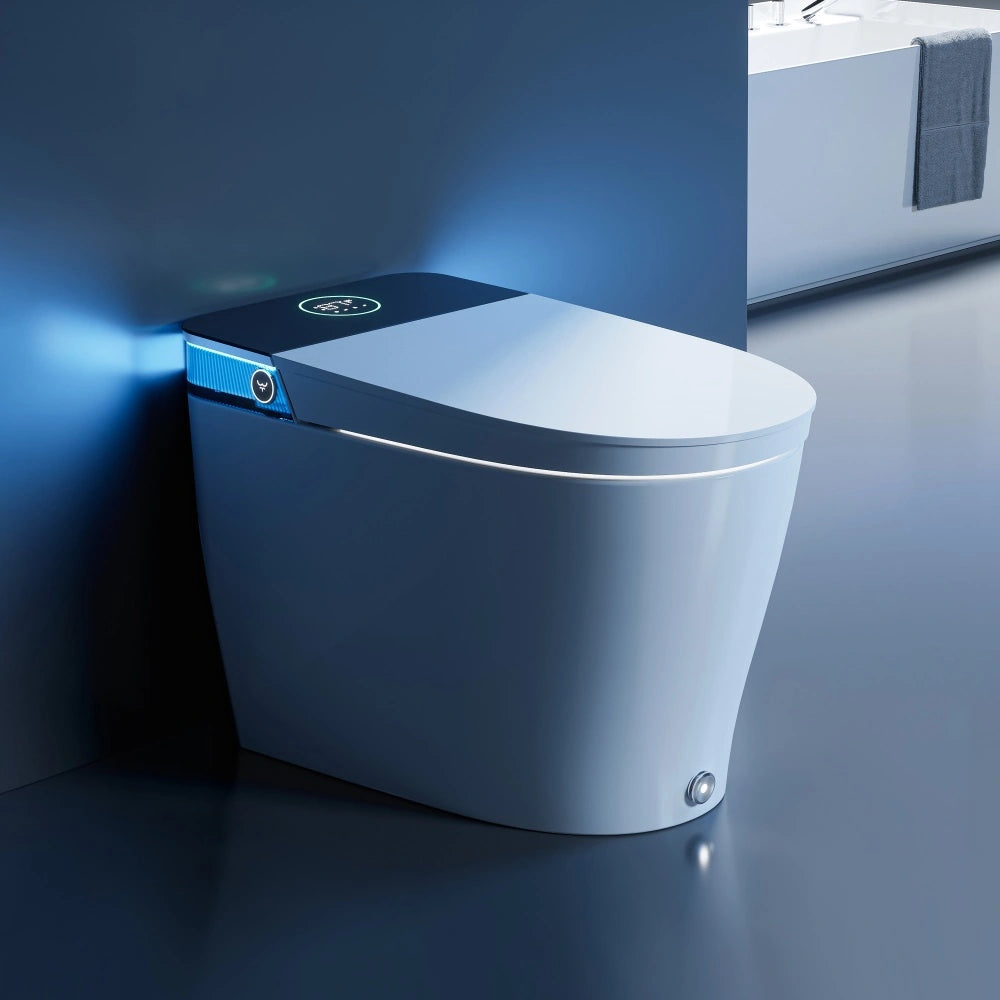
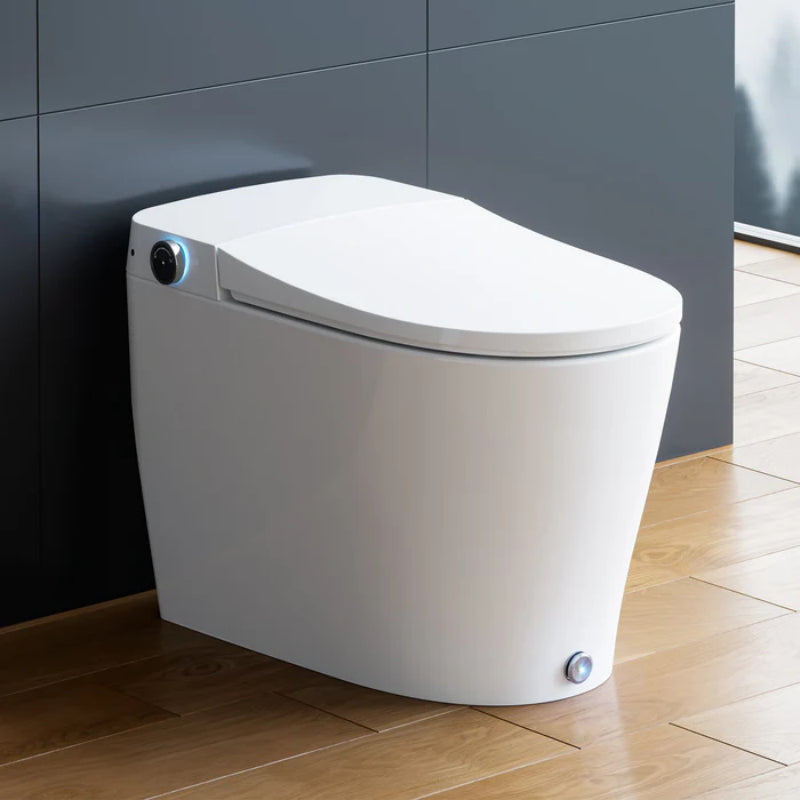
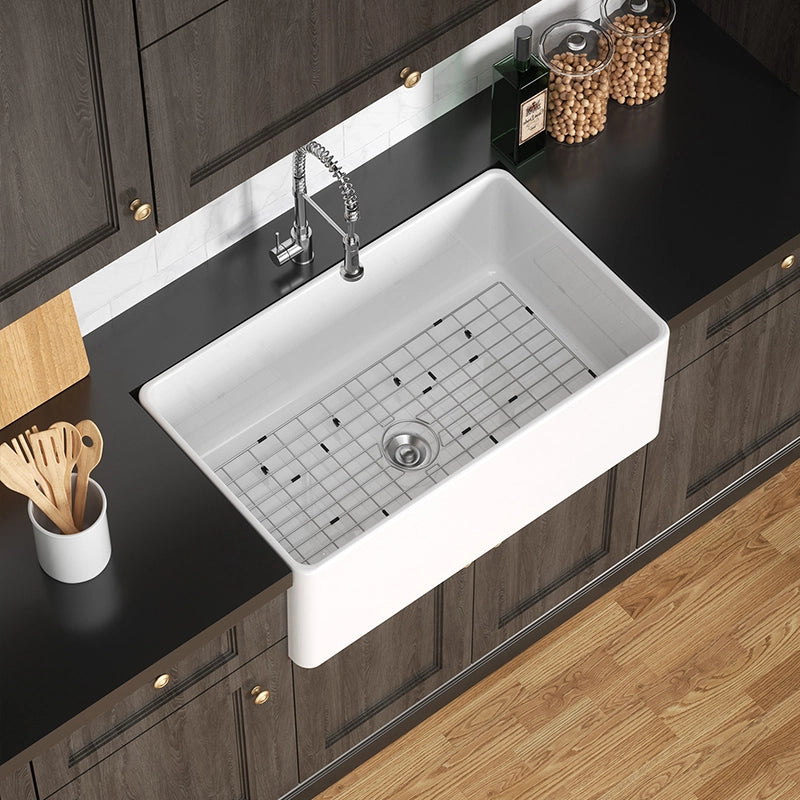

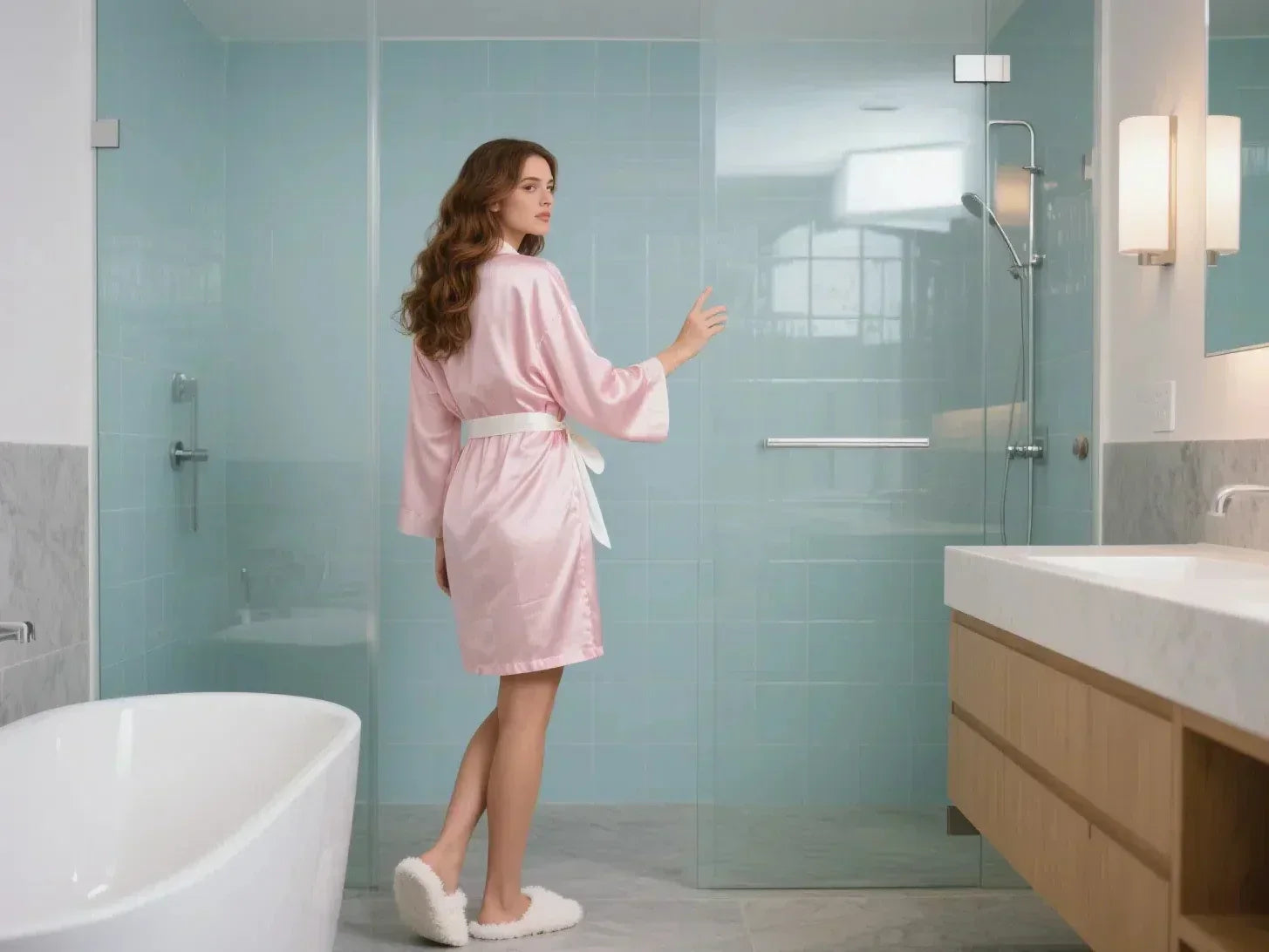
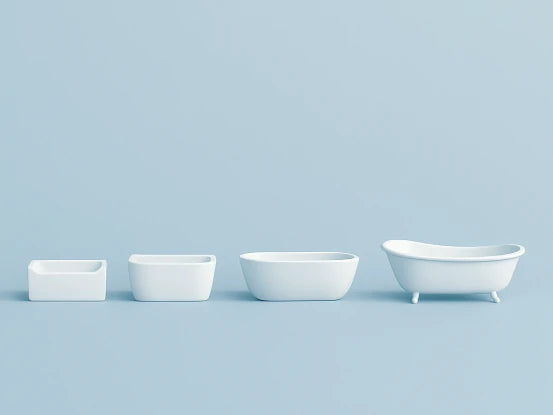

Leave a comment
This site is protected by hCaptcha and the hCaptcha Privacy Policy and Terms of Service apply.